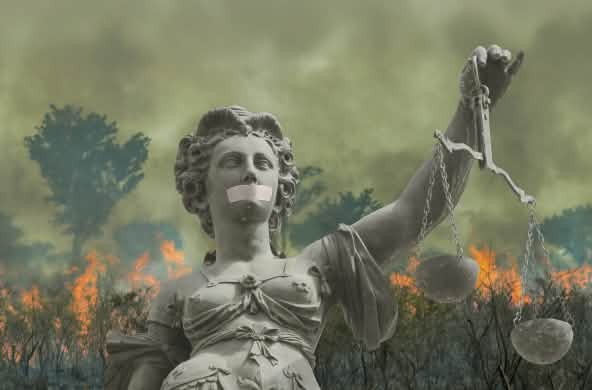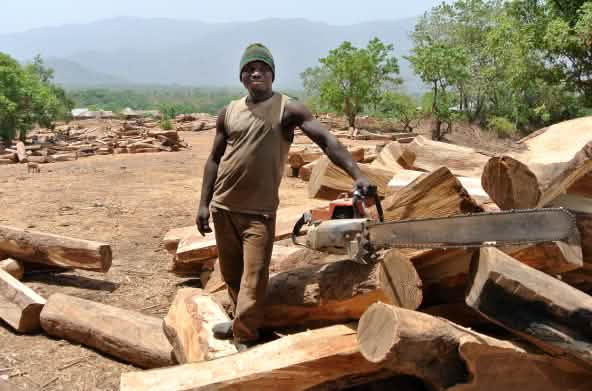Completed campaign
Indonesia: Plan to displace coffee farmers in Jambi Province
From Indonesia international support is requested. In the Province of Jambi in Indonesia, more than 9,000 family farmers who have settled in an abandoned forest concession of around 10,000 hectares are facing the threat of being displaced to give the land for oil palm plantations.
People have now been told to leave the land, or else they will be forcibly evicted. On November 8th one person died shoot by the police in the context of the conflict: "Violence is the fruit of policies unfavorable to people" says a communicate from Indonesia. It is a "black day" for Jambi.
The conflict occurred in Senyerang, a village in Tanjung Jabung Barat regency, between more than 1,600 households and PT Wira Karya Sakti (PT WKS), a subsidiary of the Sinar Mas Group, a palm oil company. 7,000 hectares of the concession lie in Senyerang vicinity. The villagers have been using the area to grow various agricultural commodities, such as bananas, coconuts, cassava, and other foodcrops. The farmers also grow coffee, the main source of income of the families and also a very important product for the local economy. This long-established practices were disrupted when PT WKS forbade the villagers to use the lands in 2001, claiming the area as a concession whose permit was granted to it.
According to the organisation Gerakan Peduli Manusia GPM, the forest use conflict in Senyerang, which has led to violence, is a manifestation of bad spatial planning bureaucracy, governmental officials' orientation that prioritises power than people's safety as well as bad implementation of eminent domain that is coopted by corporations. And "If the government does not immediately and seriously review and reform spatial planning and eminent domain in the forestry sector, nor does it develop constructive conflict resolution strategies, events such as that in Senyerang or land use- and land tenure-related violence against people, especially farmers, will likely to recur, just a matter of time," said Feri Irawan of Perkumpulan Hijau.
Below you will find the letter to be sent by the local groups to the Indonesian Government urging to immediately stop the displacement. If you wish to support this action, please send complete the form below.
TO THE INDONESIAN GOVERNMENT
Jambi, November 2010
DR H Susilo Bambang Yudhoyono
The President of the Republic of Indonesia
The State Secretary of the Republic of Indonesia
Jl Veteran No 17-18, Jakarta 10110
Tel. (021) 3845627, 3442327
Fax. (021) 3451069, 3849061*
Assalamu’alaikum Wr Wb
Dear Mr. President,
Mr. President, I would like you to know the situation surrounding 9,000 coffee farmers in Lembah Masurai, Merangin Regency, Jambi Province.
1. In 1996, like in other provinces, the province of Jambi saw the bankruptcy of HPH (Hak Penguasaan Hutan) due to their bad management models. There were about 15 HPHs encompassing an area of 1,1 million hectares, which had been abandoned by their concessionaires, including PT Injapsin and PT Serestra II in Merangin regency. PT Injapsin and PT Serestra II had controlled 49,000 and 96,000 hectares of land recpectively. Both the concessions lie adjacent to Kerinci Seblat National Park (TNKS).
2. The “management vacum” has driven local communities to divide the concession areas into smaller lots. Some of those dividers were settlers from South Sumatra, who bought the lots from the local community, i.e. residents of Sungai Tebal hamlet. After dividing the area, communities grew coffee. The production turned out to be of high quality, even better than Pagar Alam coffee. Quality coffee and settlers’ success in growing coffee immediately spread not only in South Sumatra, but also to Bengkulu, Lampung and North Sumatra. Like herds of locusts, in a 10-year period (up to 2006), 3,000 outsiders totalling approximately 9,000 lives came to settle in the area and grow coffee.
3. The area has established reputation as a center of quality coffee, and even a main supplier to leading coffee industries, both at local and national level. Coffee farmers can earn an average 4-5 million rupiahs monthly. The outsiders, along with the local communities, have established an economic-social system. The outsiders’ children go to school and make friend with local children. Several outsiders are even able to send their children to universities. A trade system has been established: the local communities provide the outsiders’ needs and the outsiders help with the development of social infrastructure and participate in village activities. Although the outsiders have got ID cards, paid taxes and participated in the election, they are still considered outsiders. Coffee plantations, despite its direct and indirect contribution to local economy, cannot be made subject to taxation as it is considered illegal.
4. On 31 August 2010, and on 22 September 2010, the Regent of Merangin commanded coffee farmers inside the ex-concession area to leave the area, on the grounds that they have violated Forestry Law No. 41 of 1999 Forestry article 50 paragraph 3 letter a and b. If they are persistent to stay, the Regent will not be taken accountable if their plantations, houses and belongings are demolished by a Joint Operation. The Regent’s letter has caused a lot of anxieties among the coffee farmers. They are preparing themselves as if they would face a war. When several activists came to the area to discuss with them and defend them,
they were welcomed with suspicious look from all the men, who were carrying machetes and the likes on their waists, which was by far different from their visit to the areas several years ago (2007 and 2009).
5. Mr. President, there are several facts that deserve consideration:
a. These coffee farmers from outside the area (South Sumatra, Lampung, Bengkulu, North Sumatra) have been managing the ex-concession areas – the no man’s land with no management on it – for more than 12 years. In the beginning, they were invited by local communities to come and buy the lots. In 12 years, many changes have been happening.
b. The 30 million coffee trees grown in approximately 10,000 hectares of land have supported the lives of more than 9,000 famers’ families, and even contributed to the local economy. If we visit the market day (on Wednesdays) in Sungai Tebal hamlet, thousands of local people and settlers are involved in trade transactions. A rough estimate suggests up to a monthly turnover of 12 billion rupiahs (for the income per farmer, 3,000 households) and of more than 20 billions for all the production chains (about 16 percent of the regency budget), a potential local revenue that should not be ignored.
c. The coffee farmers have built primary schools independently, paid taxes and taken part in the election. Not only the farmers, but women and children also live in the area, interact with the local communities and have established a social-economic-cultural chain.
d. The currently circulating issue, particularly following the Regent’s letter, is the segregation of local communities and outsiders. The coffee farmers are considered outsiders threatening the local communities. The issue has caused a lot of concerns, can potentially lead to SARA issue, and may eventually trigger anti-ethnic groups sentiment.
The Honorable Mr. President, displacing 9,000 lives, comprising adults, women and children, and the burning of 30 million coffee trees will surely not be an ordinary case. This will constitute a humanitarian tragedy. The plan to conduct a Joint Operation (the Ministry of Forestry, the Jambi Provincial Forestry Office, and the National Military and the National Police) will ruin the self-established social-economic system, potentially contributing to local revenue used for poverty alleviation. In addition, such operation will leave nothing but traumatic experience of violence among the women and children.
The Honorable Mr. President, not a single individual seems to accept violent act through displacement and demolition of sources of livelihood by other people, even if the objects of the violence are accused of violating positive laws. This is an obvious act of primitiveness and will give the country a bad name before the global communities; moreover, if such an action is based on ethnic sentiment, this will be a rude betrayal of the founding fathers who would built the country on diversity and will potentially trigger ethnic-based violence.
Therefore, the Honorable Mr. President, I would request you to look into the case in an objective and wise manner. We request that the Joint Operation, which will displace and demolish the farmers’ coffee plantations and belongings, be cancelled, and wiser, fairer and non-SARA solutions be developed. Mr. President,
for your consideration, coffee is a much more environmentally-friendly species than oil palm; it does not need pesticide; it grows under canopy, which means that the cultivation can potentially be combined with that of forestry species.
Based on interviews with the farmers, they are very open to engagement in community-based forest management programs in combination with their coffee cultivation. Conflict-resolution approaches are still very likely to be applied in this case. In our humble opinion, such approaches will be much wiser than displacement and demolition.
The Honorable Mr. President, it is our expectation that you can offer the best resolution to the case. We thank you for your kindly attention and cooperation.
Wassalam,

